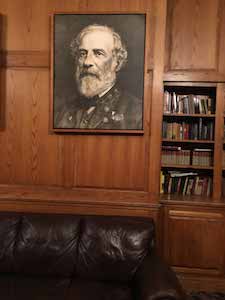The 1,827 undergraduate students who attend Washington and Lee come from states ranging from Maine to California and Minnesota to Texas. They travel from Argentina to Vietnam to Lexington, Va., to study at W&L.

Change comes slowly to a place steeped in tradition.
This project was reported by Caroline Boras, Jenna Choi, Liz Janisse, Bryn McCarthy, Alison Murtagh, Julia Udicious, Xiaoxia Yin and Kathryn Young. It was written by Caroline Boras and Alison Murtagh.
Washington and Lee University is at a pivotal point in its history, facing demands to diversify a student body that is 83 percent white. Students, faculty and administrators readily admit that W&L, widely viewed as one of the best liberal arts universities, could become even better if it recruits and retains more students of color.
In August 2017, President William C. Dudley formed the Commission on Institutional History and Community that launched a campus-wide conversation about why W&L’s student-of-color population has been so stubbornly low, hovering at or below single digits, for years.
Tradition permeates everything at Washington and Lee. The university resisted integration until the mid-1960s, and did not admit women until 1985, years after its peer institutions.
Some students believe the school’s ties to the Civil War and Confederate General Robert E. Lee are factors that prevent it from attracting minority students.
The university insists that it honors Lee for his contributions as an educator, who piloted scholarships for printers, created the university's law school and launched an early version of today’s Honor System. That portrayal of Lee plays down his role in the Civil War.
During the summer of 2017, white nationalists and their supporters clashed with counter-protesters in nearby Charlottesville. A woman was killed when police say a white nationalist supporter plowed his car into a crowd of counter-protesters.
Two weeks later, Dudley formed a 12-member commission to make recommendations about how W&L should deal with its past.
I have asked this commission to lead us in an examination of how our history—and the ways that we teach, discuss and represent it—shapes our community.
The commission is expected to present its findings in spring 2018.
In late March, the student body elected Elizabeth Mugo, '19, as president of its Executive Committee. She is the first African-American woman to hold the position.
The 1,827 undergraduate students who attend Washington and Lee come from states ranging from Maine to California and Minnesota to Texas. They travel from Argentina to Vietnam to Lexington, Va., to study at W&L.

When you know, you know.
Heeth Varnedoe, '19, Economics major and Poverty and Human Capabilities minor
Frankly, this is the best school I got into.
I knew the first day I visited that I wanted to ED (early decision) here.
Olivia Stoffel, '19, Business Administration major and Mass Communications minor
Drew Barnard, '19, Biology major and Environmental Studies minor. Jimmie Johnson III, '20, Politics and Journalism double major
The high academics was a big draw for me.
I can graduate from W&L without having gone into debt.
Ellen Kanzinger, '18, Studio Art and Journalism double major
Yolanda Yang, '18, Politics and Psychology double major
Being in such a historical place really attracted me.
The university emphasizes Lee’s role as an educator. Some students say they didn't think much about him when they decided to attend W&L. But many of them say they now believe that the university should tell Lee’s entire story.
Heeth Varnedoe, '19, Economics major and Poverty and Human Capabilities minor
Personally I’m not in favor of changing the name, but I think we need to do a lot better job of being critical about why we are named after a former Confederate general.
I went to an extremely liberal high school. As someone with more conservative beliefs I often felt kind of, like, outcast and was often made fun of and called, like, racist.
Sarah Sanchez, '20, Business Administration major
Javier Peralta, '21
If it wasn’t for Robert E. Lee, we wouldn’t have the school ... in the conditions we have it now.
I did not understand the weight of that past before I came here.
Virginia Kettles, '19, Strategic Communication major and Creative Writing minor
 Lee's image is everywhere on campus, from t-shirts to posters to shot glasses. His portrait hangs in almost all of the fraternity houses.
Lee's image is everywhere on campus, from t-shirts to posters to shot glasses. His portrait hangs in almost all of the fraternity houses.